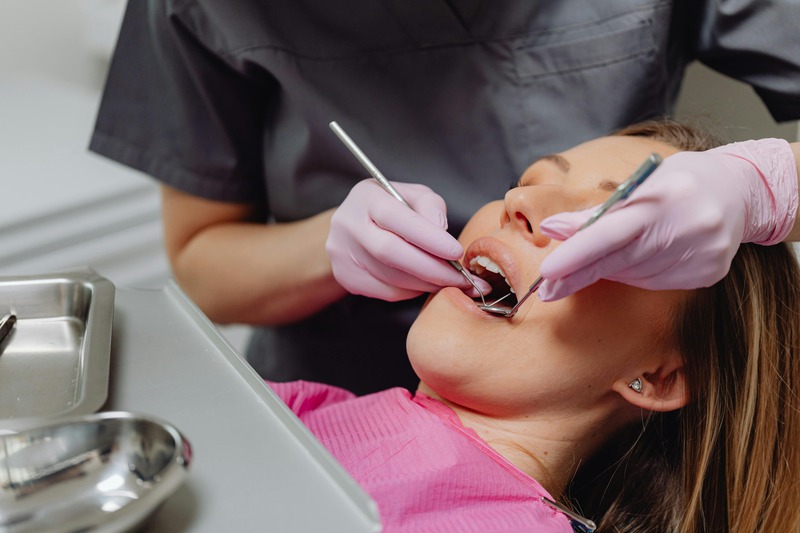
Why is Oral Hygiene Vital for Overall Health?
Maintaining good oral hygiene is not just about keeping a bright smile; it’s deeply connected to your overall health. From powering through your day with confidence to preventing systemic diseases, the benefits of oral care extend far beyond your mouth.
The Gateway to Your Body’s Health
Your mouth is like the front door to your health, offering clues about what’s going on inside your body. Problems in your mouth can affect the rest of your body, which is why keeping it clean and healthy is critical. Diseases such as endocarditis and cardiovascular conditions have been linked to oral health, emphasizing the mouth-body connection.
Prevention of Oral Diseases
Good oral hygiene is essential in preventing tooth decay and gum disease. When plaque builds up, it can lead to:
-
Tooth decay: This is the destruction of your tooth enamel, which can eventually cause cavities.
-
Gingivitis: The early stage of gum disease, which, if left untreated, may progress to periodontitis.
Regular brushing and flossing can keep these issues at bay and save you from potential health complications down the road. For those experiencing tooth loss, options like dental bridges Gonzales can restore functionality and appearance, further highlighting the integration of oral health into overall well-being.
Oral Health and Systemic Diseases
There is a significant link between poor oral health and chronic systemic diseases. For instance, periodontitis has been associated with an increased risk of developing heart disease. Bacteria from inflammation of the gums and periodontal disease can enter your bloodstream and travel to the arteries in the heart, potentially leading to heart attacks.
Diabetes and Oral Health
People with diabetes are more susceptible to gum disease, which in turn can affect blood glucose control and contribute to the progression of diabetes. Managing oral health is a crucial part of diabetes care.
Pregnancy and Oral Health
Pregnancy-related hormonal changes can increase a woman’s risk of developing periodontal disease, which could affect the health of the developing baby. Expecting mothers should pay extra attention to their oral care routine.
Impact on Digestion and Nutrition
Starting with the first stage of digestion in the mouth, oral health impacts how your body processes food. If you have tooth pain or gum problems, you’re less likely to chew food properly, leading to digestive issues. A healthy mouth can help ensure that you get the full nutritional benefits from your food.
Oral Health in Nutrient Absorption
-
Initiating Digestive Processes: The process of digestion begins in the mouth, with the act of chewing and breaking down food particles. Saliva contains enzymes that start to chemically break down food, particularly carbohydrates. When oral health issues interfere with chewing, it can disrupt these initial stages of digestion, leading to less efficient nutrient extraction down the line.
-
Importance of Thorough Chewing: Chewing thoroughly is essential for the breakdown of food into a form that is more easily digested once it reaches the stomach and intestines. It also signals the body to begin other processes that are part of digestion, like the production of stomach acid and digestive enzymes. When oral health impedes proper chewing, it’s not only the efficiency of digestion that suffers but also the body’s ability to access and utilize nutrients from the food.
-
Preventing Digestive Complications: A healthy mouth plays an important preventive role in safeguarding against more significant digestive concerns. Issues such as tooth loss and gum disease can change dietary habits, leading individuals to avoid certain healthy, fibrous foods that require more rigorous chewing. This avoidance can lead to a less varied diet, potentially impacting the diversity and balance of nutrients that the body receives.
Boosting Self-Esteem and Confidence
A healthy smile can do wonders for your self-esteem and confidence. Teeth that are well-taken care of contribute to a positive self-image and can influence social interactions and opportunities in your professional life.
Advancements in dental technology have made it easier to maintain oral health. For example, treatments like laser dentistry Gonzales offer a less invasive option for various dental procedures, reducing discomfort and healing time.
Establishing a Routine for Oral Health
Creating and sticking to a daily oral care routine is the foundation of good oral hygiene. This should include:
-
Brushing at least twice a day with fluoride toothpaste
-
Flossing daily to remove plaque from areas your toothbrush can’t reach
-
Regular dental checkups and cleanings
Remember, prevention is better than cure, so establishing a solid oral care routine can save you from future health issues and expenses. Similarly, innovative solutions like root canals Gonzales have improved the experience of saving damaged teeth. With today’s technology, getting a root canal is no more uncomfortable than getting a filling.
Living with Oral Health in Mind
Your lifestyle choices, such as diet and tobacco use, have a direct impact on your oral health. Consuming a diet low in sugar and high in fruits, vegetables, and fiber can help protect your teeth and gums while avoiding tobacco products is essential for preventing oral cancers and periodontal diseases.
Protecting your oral health is a smart investment in your overall health. By understanding the connection between oral hygiene and overall health, you can take proactive steps to maintain a healthy mouth and body.
To Wrap It Up
Oral hygiene is a critical component of overall health. Neglecting it can lead to not just dental issues but also a myriad of health complications. By adopting a holistic approach to oral care, you help safeguard your well-being and enhance your quality of life. Investing in your oral health is an investment in your future health and happiness.

